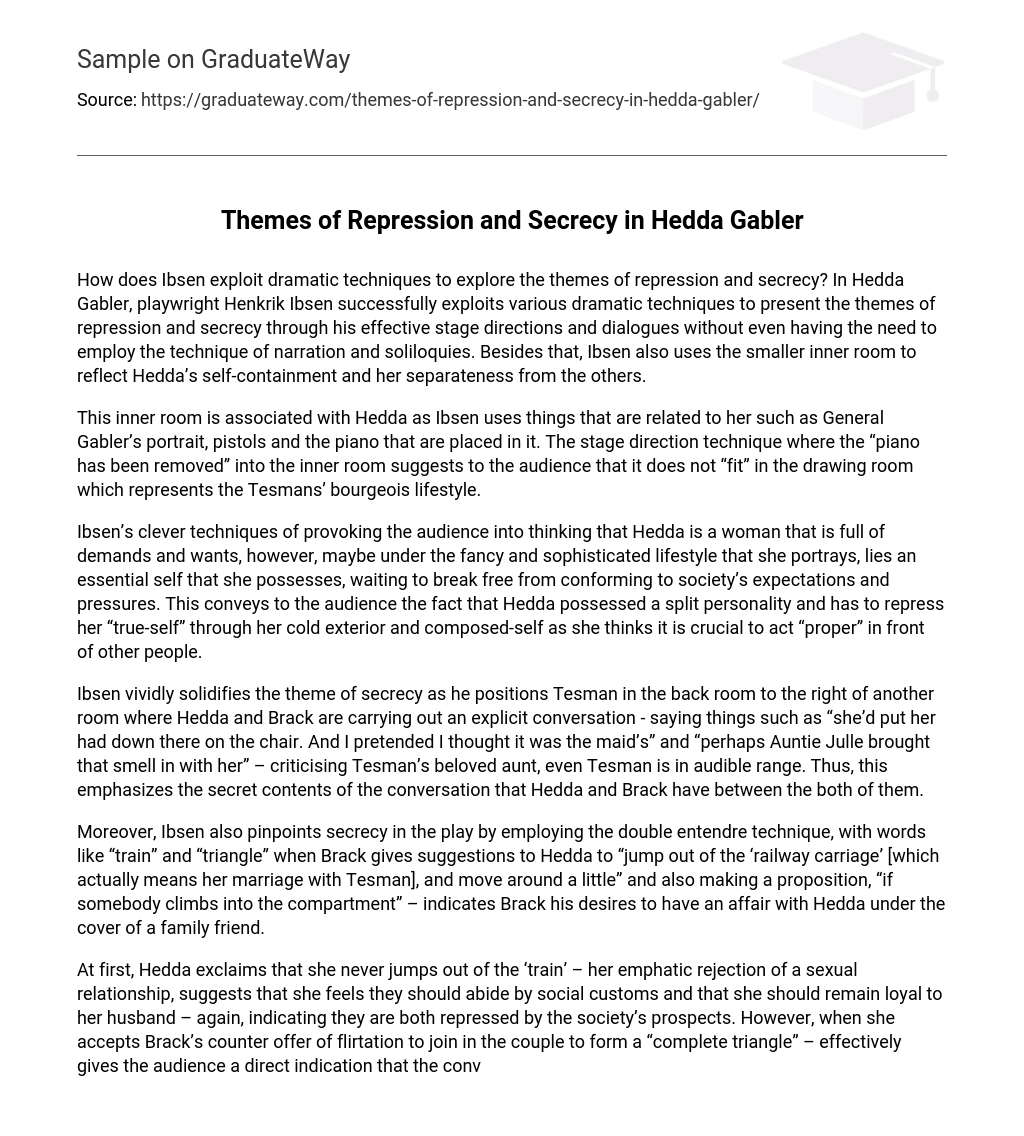How does Ibsen exploit dramatic techniques to explore the themes of repression and secrecy? In Hedda Gabler, playwright Henkrik Ibsen successfully exploits various dramatic techniques to present the themes of repression and secrecy through his effective stage directions and dialogues without even having the need to employ the technique of narration and soliloquies. Besides that, Ibsen also uses the smaller inner room to reflect Hedda’s self-containment and her separateness from the others.
This inner room is associated with Hedda as Ibsen uses things that are related to her such as General Gabler’s portrait, pistols and the piano that are placed in it. The stage direction technique where the “piano has been removed” into the inner room suggests to the audience that it does not “fit” in the drawing room which represents the Tesmans’ bourgeois lifestyle.
Ibsen’s clever techniques of provoking the audience into thinking that Hedda is a woman that is full of demands and wants, however, maybe under the fancy and sophisticated lifestyle that she portrays, lies an essential self that she possesses, waiting to break free from conforming to society’s expectations and pressures. This conveys to the audience the fact that Hedda possessed a split personality and has to repress her “true-self” through her cold exterior and composed-self as she thinks it is crucial to act “proper” in front of other people.
Ibsen vividly solidifies the theme of secrecy as he positions Tesman in the back room to the right of another room where Hedda and Brack are carrying out an explicit conversation – saying things such as “she’d put her had down there on the chair. And I pretended I thought it was the maid’s” and “perhaps Auntie Julle brought that smell in with her” – criticising Tesman’s beloved aunt, even Tesman is in audible range. Thus, this emphasizes the secret contents of the conversation that Hedda and Brack have between the both of them.
Moreover, Ibsen also pinpoints secrecy in the play by employing the double entendre technique, with words like “train” and “triangle” when Brack gives suggestions to Hedda to “jump out of the ‘railway carriage’ [which actually means her marriage with Tesman], and move around a little” and also making a proposition, “if somebody climbs into the compartment” – indicates Brack his desires to have an affair with Hedda under the cover of a family friend.
At first, Hedda exclaims that she never jumps out of the ‘train’ – her emphatic rejection of a sexual relationship, suggests that she feels they should abide by social customs and that she should remain loyal to her husband – again, indicating they are both repressed by the society’s prospects. However, when she accepts Brack’s counter offer of flirtation to join in the couple to form a “complete triangle” – effectively gives the audience a direct indication that the conversation between the both of them is full with sexual innuendos which is completely confidential and private. (1282 words)





